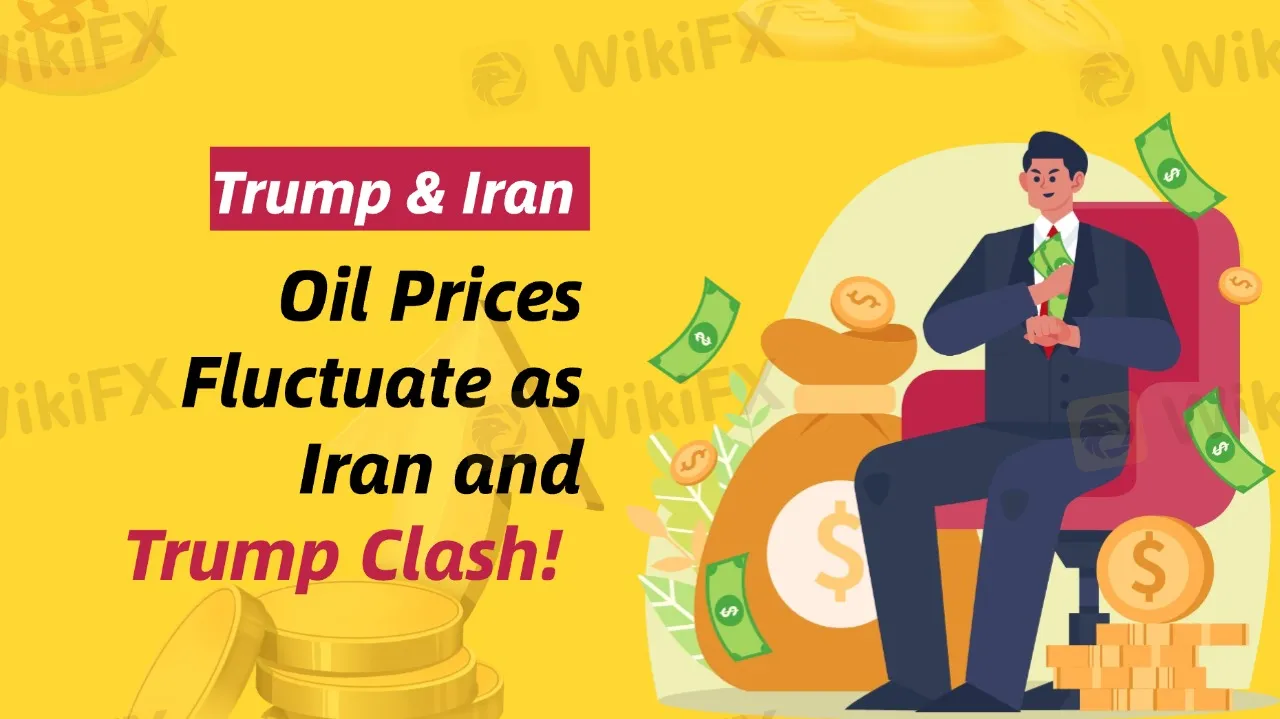简体中文
繁體中文
English
Pусский
日本語
ภาษาไทย
Tiếng Việt
Bahasa Indonesia
Español
हिन्दी
Filippiiniläinen
Français
Deutsch
Português
Türkçe
한국어
العربية
Oil Prices Fluctuate as Iran and Trump Clash!
Abstract:As Trump once again implements the "maximum pressure" policy on Iran, oil prices have become increasingly volatile, and the atmosphere in the international markets has grown more tense.

The Iranian government has consistently stated that it is willing to negotiate with the U.S., but under the condition that such talks are not conducted within the framework of the “maximum pressure” policy. Iranian Foreign Minister Abbas Araghchi clearly stated that any negotiations for lifting sanctions must be based on equality and respect, not under the threat of “maximum pressure,” as this cannot be considered negotiation, but rather surrendering to Iran.
Additionally, Iran‘s Supreme Leader Ayatollah Ali Khamenei has explicitly pointed out that he does not support negotiations with the U.S., calling Trump’s diplomatic policy reckless.
Trump's Pressure on Iran
The Trump administration not only withdrew from the Iran nuclear deal but also reinstated severe sanctions on Iran, even targeting the countrys oil exports. After the U.S. withdrew from the agreement in 2018, Trump attempted to force Iran to make concessions on nuclear issues through economic pressure. Recently, the U.S. intensified its sanctions on Iran, announcing sanctions on individuals and companies involved in transporting Iranian oil to China.
Trump has clearly stated that Iran cannot possess nuclear weapons and has called for a “verified nuclear peace agreement,” while Iran insists that its nuclear program is for peaceful purposes and denies any intention to develop nuclear weapons. As sanctions continue to escalate, the tension between the two sides is also increasing.
In response to Trump‘s “maximum pressure,” Iran has taken a hard stance, stating that it will never negotiate under the increasing sanctions. Iranian Oil Minister Bijan Zanganeh stated directly that Trump's maximum pressure policy, particularly the aim to reduce Iran's oil exports to zero, has failed. As restrictions on Iranian oil exports become more severe, Iran's countermeasures become more complex, showing that the U.S. cannot easily achieve its goal of bringing Iran’s oil exports to zero.
The ongoing battle between Iran and Trump has created a volatile situation for oil prices. For global investors, closely monitoring the diplomatic and economic policy developments between the two countries will help in navigating the opportunities and risks posed by oil price fluctuations.
Disclaimer:
The views in this article only represent the author's personal views, and do not constitute investment advice on this platform. This platform does not guarantee the accuracy, completeness and timeliness of the information in the article, and will not be liable for any loss caused by the use of or reliance on the information in the article.
Read more

Why Your Stop Loss Keeps Getting Hit & How to Fix It
Many new traders run into the same frustrating problem. They analyse the market, place a trade, and watch the price go against them just enough to hit their stop loss. Then, like a bad joke, the price moves exactly in their predicted direction. Read this article to learn how to fix this issue for good!

Safe-Haven Surge: Gold Shines Amid Market Turmoil
Rising geopolitical tensions fuel a flight to safety, propelling gold past key resistance and positioning it as a top-performing asset in today’s volatile market.

Forex Trading Challenges in India
Explore this guide to understand the challenges that deter India's forex market from unleashing its true potential.

The Deepening Roots of Forex Scams in India
Check out how forex scams in India have expanded beyond banks and unregistered brokers to include the informal gang racket duping investors every day.
WikiFX Broker
Latest News
U.S. consumer prices rose 2.4% in May, below expectations
ASIC Flags New Threat: Unlicensed Finfluencers Targeting Aussie Youth Through Hype Culture
Boosted by U.S. CPI, Yen May Rise Again
Global oil prices soar after Israel attacks Iran
Advantages of Using EA VPS for Trading - Detailed Guide
$1.1 Million Default Judgement Passed Against Keith Crews in Stemy Coin Fraud Scheme
MetaQuotes Rolls Out MT5 Build 5120 with Enhanced Features and Stability Fixes
Indian "Finfluencer" Asmita Patel Banned: SEBI Slaps Charges on Her Company, AGSTPL
HDFC Bank's Green Push: Empowering 1,000 Villages with Solar Energy
Safe-Haven Surge: Gold Shines Amid Market Turmoil
Currency Calculator


